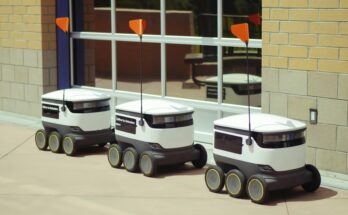Artificial Intelligence (AI) is revolutionizing every aspect of our lives, transforming industries, and reshaping the global economy. From healthcare to finance, education to entertainment, AI’s impact is profound and far-reaching. This article delves into the myriad ways AI is changing the world, highlighting key advancements and their implications.

Healthcare: Revolutionizing Diagnosis and Treatment
In healthcare, AI is making significant strides in improving diagnostic accuracy and treatment efficiency. Machine learning algorithms analyze vast amounts of medical data to detect patterns that might be invisible to the human eye. For example, AI-powered imaging tools can identify early signs of diseases like cancer and Alzheimer’s, enabling timely interventions. Additionally, AI-driven predictive analytics assist in anticipating patient needs, optimizing hospital resources, and reducing costs. Personalized medicine, tailored to an individual’s genetic makeup, is becoming a reality, thanks to AI’s ability to process and interpret complex biological data.
Finance: Enhancing Efficiency and Security
The finance sector is leveraging AI to enhance efficiency, reduce fraud, and provide personalized customer experiences. AI algorithms are used in trading to analyze market trends and execute high-frequency trades with precision. Robo-advisors offer personalized investment advice based on individual risk tolerance and financial goals. Furthermore, AI systems detect fraudulent activities by monitoring transaction patterns and flagging anomalies. This proactive approach to security helps protect both financial institutions and their customers from potential threats.
Education: Personalizing Learning Experiences
AI is transforming education by creating personalized learning experiences that cater to individual student needs. Intelligent tutoring systems provide customized feedback and support, helping students learn at their own pace. AI-driven analytics tools assess student performance, identifying strengths and weaknesses to tailor educational content accordingly. Additionally, AI enables the automation of administrative tasks, allowing educators to focus more on teaching and less on paperwork. The integration of virtual reality (VR) and augmented reality (AR) with AI is also enhancing immersive learning experiences, making education more engaging and effective.
Entertainment: Revolutionizing Content Creation and Consumption
In the entertainment industry, AI is changing the way content is created, distributed, and consumed. AI algorithms analyze user preferences to recommend personalized content on streaming platforms like Netflix and Spotify. In filmmaking, AI is used to generate realistic special effects and even script elements, augmenting the creative process. Video game developers utilize AI to create more intelligent and responsive non-playable characters (NPCs), enhancing the gaming experience. Additionally, AI-driven analytics help media companies understand audience behavior, allowing for more targeted advertising and content strategies.

Transportation: Paving the Way for Autonomous Vehicles
The transportation sector is witnessing a paradigm shift with the advent of AI-powered autonomous vehicles. Self-driving cars, equipped with advanced sensors and AI algorithms, can navigate roads, avoid obstacles, and make real-time decisions to ensure passenger safety. AI is also optimizing public transportation systems by analyzing traffic patterns and predicting demand, leading to more efficient and reliable services. The potential for AI to reduce traffic congestion, lower accident rates, and decrease emissions is immense, promising a future of smarter, greener transportation.
Manufacturing: Driving Efficiency and Innovation
AI is transforming manufacturing processes by enhancing efficiency, reducing waste, and driving innovation. Smart factories, equipped with AI-powered robots and IoT devices, can monitor production lines, predict equipment failures, and optimize maintenance schedules. This leads to increased productivity and reduced downtime. AI also facilitates the design and development of new products through generative design, where algorithms suggest innovative designs based on specified criteria. The ability of AI to analyze vast amounts of data in real-time helps manufacturers respond swiftly to market changes and consumer demands.
Conclusion
The influence of artificial intelligence on the world is undeniable and continues to grow at an unprecedented rate. By revolutionizing industries such as healthcare, finance, education, entertainment, transportation, and manufacturing, AI is not only enhancing efficiency and innovation but also improving the quality of life. As AI technology advances, it will undoubtedly unlock new possibilities, presenting both opportunities and challenges that society must navigate. Embracing the potential of AI while addressing ethical considerations and ensuring equitable access will be key to harnessing its full benefits for the betterment of humanity.



